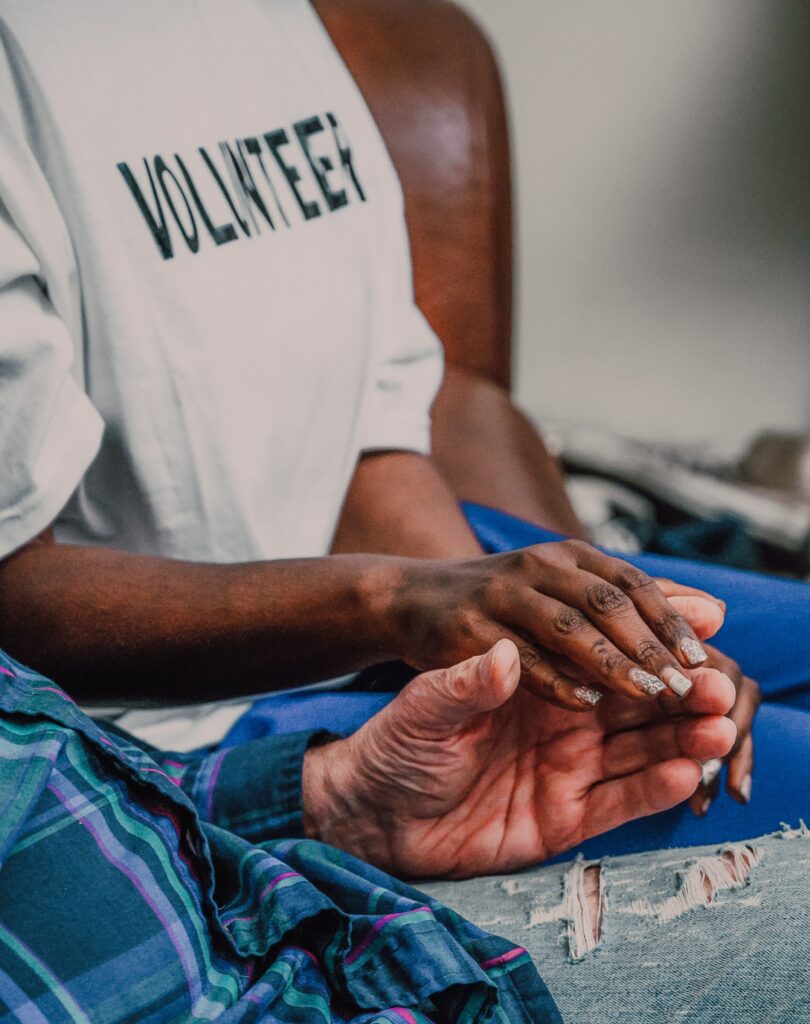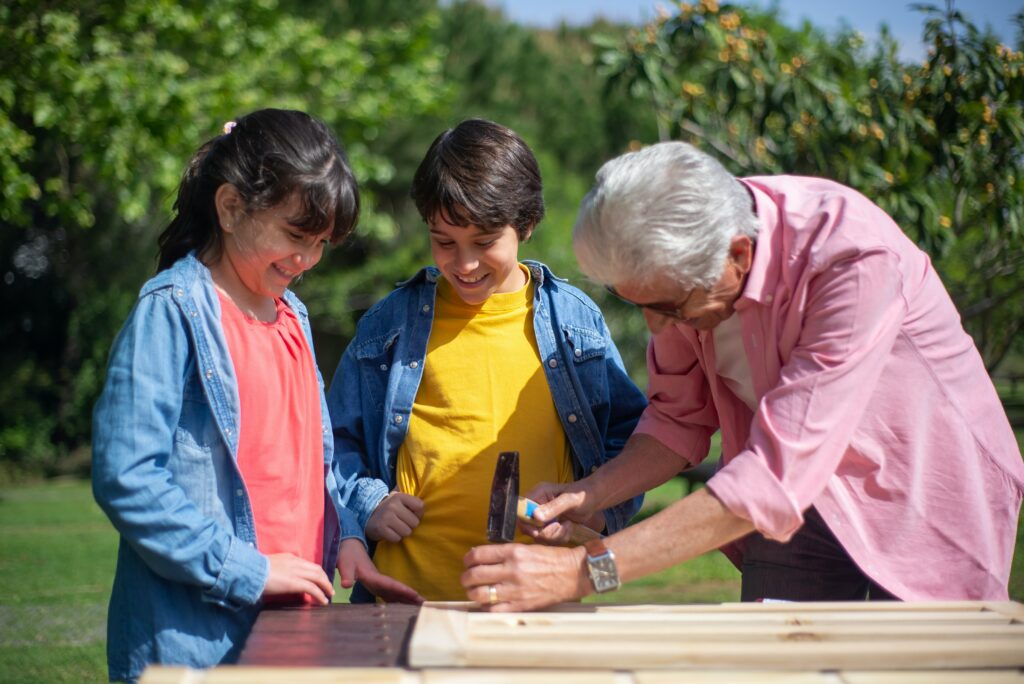When seniors hit their retirement age, many changes occur. Since they are no longer working in an office or have a job where they don’t have to commute, some look for new ideas or projects to do. Although certain seniors take this time to travel and go on vacation, some just want to stay busy by getting involved with the local community where they live. One of these activities is volunteering. When you volunteer your time and energy, you help strengthen your community. However, there are also many other benefits that comes with volunteering. It can offer both emotional and physical benefits. In most cases, retired adults want more to their life than just sitting at home and relaxing in front of the TV when they retire. In fact, new studies by the Corporation for National and Community Service shows that Americans, age of 60 and over that volunteer have a lower possibility to disability and higher levels of well-being, compared to those that don’t volunteer.
Below are the top five important reasons retired adults should consider volunteering:
1. Helps bridge generation gaps.

Volunteering is a great way to help the community you live in and it lets people know you care. Plus, it sets a positive example for young people. Seniors who volunteer are productive and active; they are helping their community, instead of sitting at home wasting away. Young people who are volunteering as well are able to converse with their elders and learn from previous generations. Sometimes it’s hard to relate to the younger generation. Afterall, there are many types of differences on how they see the world. However, seniors can learn how young people see the world. Both the young and old help each other cope with the fast paced changes each generation faces.
2. Builds up your Mental Health
Good mental health is important for each and everyone. Volunteering promotes good cognitive health. It could also help reduce the risk of dementia and other mental and physical problems seniors face. According to the National Institute on Aging, participating in meaningful activities can lower the risk of dementia, along with other health problems that seniors face.
3. Promotes physical activity
Physical health is important for everyone, especially seniors. Sometimes exercising can be difficult for certain seniors. If seniors cannot get to the gym, then volunteering is the next best thing. Staying active is something everyone should do, and seniors should continue to exercise, even if is just 20 minutes a day. Not only is it good for senior’s physical health, it is good for their mental health as well. There are many types of volunteering activities for seniors to get involved in while exercising. For example, helping out on a little league team or walking through your community as part of a neighborhood watch. Whichever exercise activity you choose, it will promote a healthy level of fitness, while warding off diseases as you age.
4. Makes your time feel all worthwhile

Volunteering makes seniors feel more productive and makes the day go faster, giving them a sense of accomplishment. It can also make them feel more youthful, with a sense of freedom. Even if they volunteer on a part time basis, getting out of the house to help someone else other themselves can be very worthwhile. One study by Wharton College states that those who give of their time, feel more capable, confident and useful to do even more. Although seniors are using up their time when volunteering, they feel that the time spent on volunteering is not wasteful. For those who can’t exactly volunteer time, can donate their money for a good cause, making them feel more humbled and a sense of true wealth.
5. Helps prevent senior isolation and depression
Everyone of us needs to feel useful, like we matter. Volunteering fights the isolation seniors face. Many people shun and dismiss the elderly, which can lead them with depression. Yet, volunteering allows a person to meet new people and tends to lessen the signs of depression, making older people feeling like they have purpose.
Volunteering tips for seniors
Believe ot or not, there are many types of volunteering opportunities and community involvement for seniors. However, before getting started, here are some important tips to consider. Think of it as a guide to volunteering. It can show seniors and anyone for that matter on where to start and why they choose to volunteering in the first part.

1. Focus on passions and talents
When considering whether or not volunteering is right for you; your focus has to be on your passion and talents. Afterall, why volunteer at a place you are not passionate about or have no talent in? Older adults do not just volunteer to get out of the house. They do it to be useful, to apply their skills and talents. It is also therapeutic, and energizes them, while helping them stay physically and mentally fit. It is a way to fight boredom, mental health decline, and depression.
2. Start local
Since lack of transportation can keep senior citizens indoors, it is important for them to make local connections with other older adults; to find the most reliable local transportation to and from the places they could be the most useful volunteering. Perhaps a neighbor can offer a ride so the senior can volunteer at a local food pantry. It does not matter where a person decides to help out. Each person has a unique set of talents and skills to make others feel special.
3. Use a Volunteer Agency
If you strike out with your local connections, you can always contact a local volunteer agency. Even the AARP site may have opportunities to get involved. They can guide elders to who to contact for transportation and place them at the best organizations for their skills and talents. This could take time, so do not get discouraged. You are not going to find the right fit at the drop of a hat. Agencies have to learn about your background skills, how mobile you are, and how much you can do and for how long. Volunteers should enjoy what they do. Not be miserable while they are doing the task at hand.
4. Understanding the volunteering process

If you have never volunteered, then the first thing to do is ask questions on how to get the process started. Some organizations have certain qualifications for the roles they offer. These could be as simple as finding out your good at cooking or looking at your driving record. If it is a particular role they might require a background check. If you are uncomfortable with background checks, or people accessing your driving record, then do not inquire about those roles. You have to be comfortable with the process that each job requires.
5. Don’t over-commit
Be careful when volunteering for organizations. Even though it is work and may not feel like a normal job, an organization might try to take advantage of you. Be mindful, and do not over-commit. When a person is asked to do too much, they can get stressed out and burn out. This helps no one, especially seniors. And, not the organization or the person who wants to be helpful. Sometimes overcommitting a person to volunteer is unintentional; however, they might be trying to take advantage of you. This is elderly abuse and needs to be reported to the authorities.
6. Don’t be afraid to say ‘no’
When volunteering do not be afraid to say “No” remember you are doing this to help others as well as yourself and if it is too much you are not helping either. You are in control, if you are getting overwhelmed, ask if you can lessen the time you are volunteering. You can always find other places to volunteer.
7. Bring a Friend or Spouse

Sometimes, older people like to be among their peers when volunteering. It is not only a great way to meet someone new, it can spark new friendships Going to volunteer together also can make the time less intimidating, especially for seniors who have never volunteered before or have not volunteered in quite some time. Plus, it can be more fun with someone they already now.
Bottom line,
There are many things to do during your retirement. However, if you really want to make a difference with either your loved ones, your neighborhood, or those in your own community, taking time to volunteer is a geat way to do it. Most people when they retire find they need to fill in the open gaps of freedom with worthwhile opportunities. Choosing an activity like volunteering brings on many benefits to your health and can also allow seniors to become good role models to the younger generation. Volunteering can be done on a flexible schedule or part of your weekly routine. Some seniors volunteer for just one to two days a month while others may volunteer up to 20 hours a week. Whatever you do and how often is completely up to you, just make it count, in every aspect.